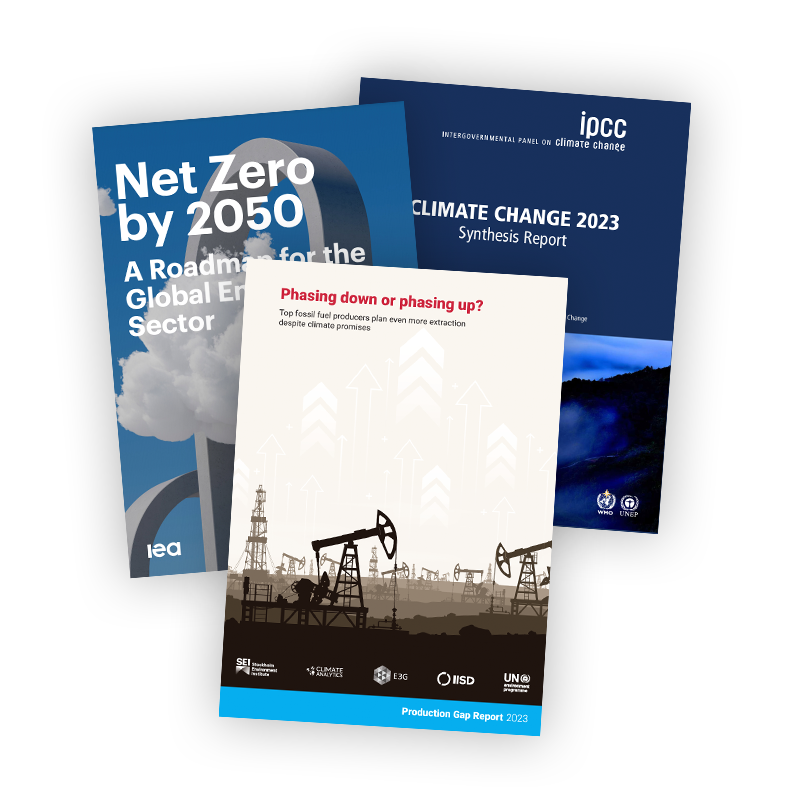The Situation
Avoiding dangerous levels of climate change and delivering on the Paris Agreement require a dramatic shift in the way that we produce and use energy. Phasing out oil and gas production is a critical part of that challenge.
Recent reports from the UN Environment Programme, the International Energy Agency and the Intergovernmental Panel on Climate Change have made it clear that it requires significant reductions in coal, oil and natural (fossil) gas to reach the goals of the Paris Agreement.

Estimates suggest that globally, if we are to have a reasonable chance of avoiding dangerous climate change, by 2050 we can burn no more than:
42%
of current proven oil reserves